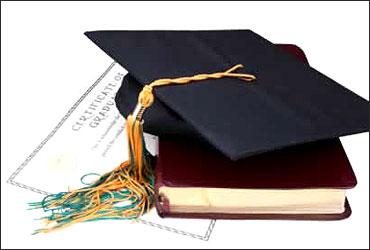
US Deputy Secretary of State Williams J Burns said that several Indian leaders -- both business and political -- educated in the US are testament to the quality of an American education.
Burns was speaking at a reception hosted by the US-India Business Council.
The reception coincided with the US-India Education Summit co-chaired by US Secretary of State Hillary Clinton and India's Human Resource Development Minister, Kapil Sibal.
At the outset, Burns, who shared the podium with Sibal, said, "Minister Sibal is a Harvard law graduate and his two sons studied in the US, so he knows well the value -- and the cost -- of an American education."
. . .
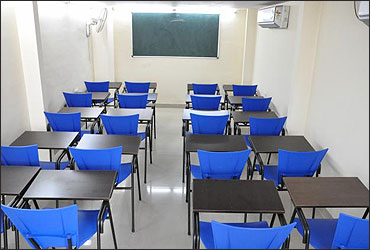
The senior US official said, "Diplomatic and security dialogues between our nations are vital and they continue to grow.
"But they are not enough.
"As Secretary Clinton has said, our greatest friendships have never existed merely in the halls of power.
"They live also in the hearts of our people, in the warmth of common experiences, in family ties and in the shared values we both cherish and champion."
Burns said, "One of those values -- which I have seen Indians and Americans sacrifice so much to deliver -- is a passionate concern about the education of our children, whether they are growing up in New York or New Delhi.
. . .
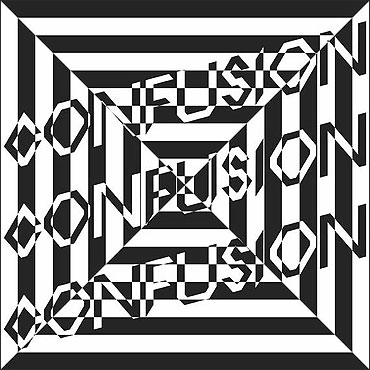
"So it's fitting, then, that we have declared education to be one of the pillars of our strategic partnership."
"As a lifelong diplomat," he noted, " I know both the tribulations and the joys of grappling with new places and cultures.
"I know the satisfaction and perspective it can bring and the opportunities it can create.
"But student exchange and collaboration between our higher education institutions produces much more than knowledgeable graduates with a degree.
. . .

Burns predicted that "today's students will become the leaders who make good on that promise in the years ahead.
"They will become tomorrow's constituencies for a strong US-India relationship -- from Indian CEOs, like Ratan Tata, the Indian Chairman of the US-India CEO Forum, educated at Harvard and Cornell, and whose companies are now creating jobs in the United States, to statesmen like India's External Affairs Minister, S M Krishna, who studied at Southern Methodist University in Dallas, became a Fulbright Scholar at George Washington University, and now is a champion for strong US-India ties."
. . .
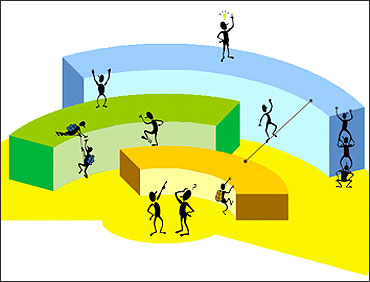
He argued, "That is not to say that our educational exchanges create alliances. But they create something more important: mutual understanding which reinforces the shared values between open societies and makes a global strategic partnership possible."
"And yet, for all the benefits -- for our people, for our economies, for our diplomacy -- it remains a long and sometimes arduous journey from India to study in America," Burns said.
"Our education system is full of thousands of excellent schools. But it is also decentralised and not always easy to understand from the outside."
. . .

He said, "At the same time, the number of American students studying in India is far too few, and the process for our schools to partner with Indian counterparts or to create new institutions of learning in India remains challenging.
"We want to do everything we can to lift the barriers to greater cooperation between our educational institutions and help these ties flourish."
"Burns challenged the audience seek out new avenues for cooperation we haven't fully explored, including community college, distance learning, and new technologies in education, which are all part of a healthy and robust higher education mix."
. . .
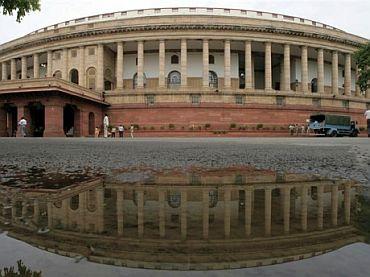
"This will be good for our students, good for our societies, good for our economies, and good for the world," he said.
Burns argued, "The truth is that we have crossed a threshold in our relations where -- for both of us, for the first time -- our success at home and abroad depends on our cooperation.
"America's vision of a secure, stable, prosperous twenty-first century world has at its heart a strong partnership with a rising India."
"The question is not whether we will have a strategic partnership, but whether we are doing as much as we possibly can to ensure that we realize its full promise. Few questions will matter more in the new century unfolding before us," he said.